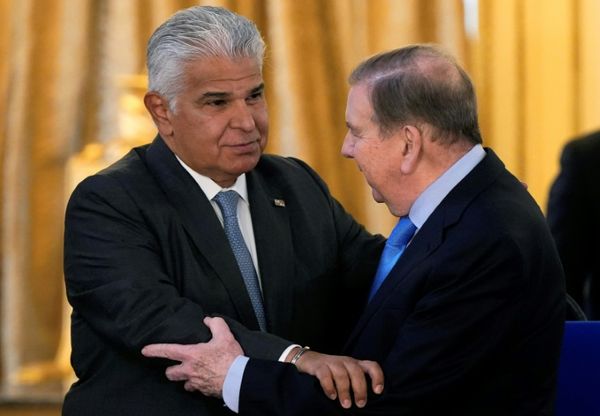
There’s been plenty of harrumphing among the media old guard in response to the letter from Australian media workers demanding better reporting on the crisis in the Middle East. They’re right to be worried: the letter marks a significant turning up of the heat regarding what journalism should look like in the 21st century.
Coming off the back of protests over the harassment and discrimination against First Nations journalists during the Voice to Parliament campaign, the letter reveals a longing for more substantial journalism — one that better enables the conversations Australia needs to have.
It’s always hard to recognise the turmoil of the new when we’re caught in the middle of it. The demands often seem inchoate, even to their advocates. The battles are fought out in a series of skirmishes, advances and retreats, with both old and new claiming to be the defenders of the craft’s truest traditions. Thoughtful journalists find themselves on different sides; plenty change their minds as the debate evolves.
As it resolves over time into a new synthesis of journalistic practice, we forget, too, that the fights ever happened. But for nearly a century, it’s been how journalism has evolved within a largely commercial media in a more or less democratic society.
The fights are an assertion of the rights and autonomy of the craft, usually against their own employers — like the adoption of journalist-written codes of ethics in the 1940s, the insistence on a more wide-eyed scepticism when reporting about power in the 1970s, and the demand for editorial independence in the 1980s and for a right to safety for all media workers in the 1990s.
No wonder management in traditional media at the Nine mastheads and the ABC has been so quick to push back, or that News Corp was quick to recognise the existential danger to its own model, bannering the journalists’ revolt as a culture war front-line in the weekend paper.
On its face, the letter sets out to give practical meaning to the opening principles of Australia’s Code of Ethics, the bit where journalists commit to the principles of “honesty, fairness, independence, respect for the rights of others”. The letter requests that journalists adhere to truth over “both-sidesism”, centre the human tragedy, apply professional scepticism to all parties (including the IDF and Hamas), provide historical context, be transparent about Israeli-government-funded trips, and value the diversity of journalism.
The words themselves make the Nine mastheads’ reaction — “Any newsroom staff who signed this latest industry letter will be unable to participate in any reporting or production relating to the war” — difficult to understand.
But the letter’s power comes from reading it as being about much more than how we report the current conflict: it’s a repudiation of the journalistic heuristic “view from nowhere” (as New York media critic Jay Rosen tagged it) that prioritises certain authorities (including certain journalistic authorities) and discounts others, that substitutes the safety of a balanced partisanship of “he said, she said” for the hard work of grounding truth in grubbed-out facts.
It’s a recognition that the “nowhere” is, in truth, a very particular somewhere: the usually unseen, traditional white, male, Western assumptions about the world. In that somewhere, a LARPing “objectivity” can’t be let go: it’s too important a buttress against attacks from established power.
In the US, the rising generation of journalists — particularly Black journalists — have brought the country’s racial reckoning to this fight in newsrooms with a call to replace “objectivity” with journalism of “moral clarity”. What does that mean? Pulitzer Prize-winner Wesley Lowery, the originator of the term, says news organisations’ “core value needs to be the truth, not the perception of objectivity”.
This week’s blow-up over the letter reminds us that these fights are almost always about power, the independence of journalism and the prerogatives of the owners.
When the NSW branch of what was then the Australian Journalists Association — which later amalgamated into the Media, Entertainment and Arts Alliance of today — adopted one of the democratic world’s first codes of ethics in 1944, it was bitterly fought (formally across rowdy union meetings and informally in the bars of Sydney’s journalism pubs) as it was seen bringing communism to the city’s newspapers.
The then-emerging media monopolies were as appalled as management is today, with a patrician attitude of “We decide who writes for our newspaper and the manner in which they write”. The Sydney Telegraph — then owned by Frank Packer — bankrolled a court challenge to the ethical code as an unacceptable external discipline of its employees.
The AJA won the case, entrenching the code in law, although it was not until the 1970s that the publishers grudgingly acknowledged that they expected their staff to abide by it.
Similarly, in the 1980s and 1990s, it took a rolling industrial campaign by Fairfax journalists to force successive owners to agree to — and then abide by — charters of editorial independence at what are now the Nine mastheads.
Hopefully, the fight for a reporting of truth and an analysis of context — for a journalism of moral clarity — won’t take so long.
Disclosure: Christopher Warren is a former federal secretary of the MEAA.
Is it OK for a journalist to sign an open letter? We want to hear from you — especially while our comments are closed due to our website upgrade. Send us your thoughts on this article to letters@crikey.com.au. Please include your full name to be considered for publication. We reserve the right to edit for length and clarity.







